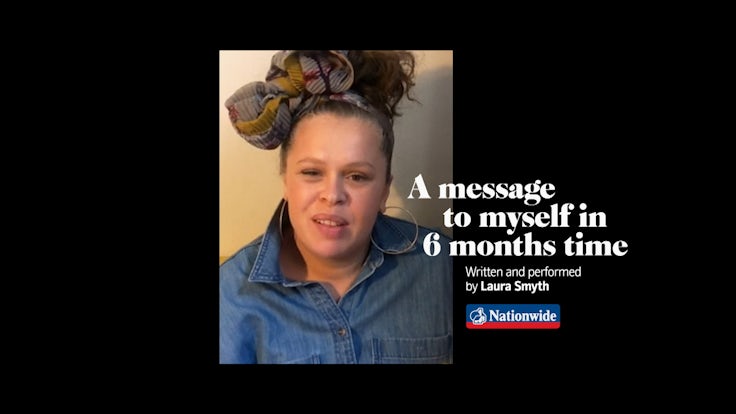Nationwide’s CMO on why long-term rigour enables short-term flexibility
By putting rigour into their long-term strategies and adopting an outcomes-focused approach, marketers could create a culture of flexibility, says Nationwide CMO Sara Bennison.
 Balancing the demands of short-term business objectives with a commitment to the long-term strategic vision is a challenge faced by marketers the world over. However, could the key to being reactive in the short term actually come from having a well-defined long-term plan?
Balancing the demands of short-term business objectives with a commitment to the long-term strategic vision is a challenge faced by marketers the world over. However, could the key to being reactive in the short term actually come from having a well-defined long-term plan?
Nationwide CMO Sara Bennison thinks so. Speaking today (23 March) at The Festival of Marketing: The Bottom Line, Bennison argued that being rigorous about the long-term vision makes flexibility in the short term possible and means you still achieve the results you need to drive the business forward.
“We’ve got so used to thinking around short-term metrics – ‘What am I going to do today? How many clicks? What’s happened here?’ – that we’re putting the rigour at the wrong end,” she said.
“We’re firming things up too much in the short term, as opposed to being clear about what we’re needing to achieve and what we need to resolutely hang on to in the long term and then be flexible in the short term about how to achieve.”
For businesses to be flexible requires a high degree of certainty in other areas, Bennison explained, for example around who you want to be as a brand, executional devices and how you go to market. Having that clarity and not needing to “start from scratch” with those elements of the marketing plan, allows for flexibility to react to the short-term business environment.
Common sense is another key factor in creating timely advertising that fits the national mood, although the Nationwide CMO admitted in some organisations this can be hard to tap into when people are wedded to a rigid plan.
“If hundreds, thousands of people have sold in a plan, shaped a plan, promised lots of stakeholders that in the second week of January we will be having support for our savings proposition, it’s really hard then to turn around and go, ‘You know what, that doesn’t feel right’ if you haven’t established a culture of being driven by what the sensible thing to do at any moment is,” said Bennison.
“I’ve seen so many times people being locked and loaded going, ‘But you promised me that I would have…’ as opposed to ‘No, I understand why we’re having to change it, let’s work out how we can still get to the outcomes that we need to, but let’s move quickly and in the right way for the time around us’.”
It’s a really interesting tension between absolute rigorous consistency of who you are and what you stand for, and a freshness so people still listen.
Sara Bennison, Nationwide
Nationwide has had to bring this thinking into action several times over the past 12 months. When the first national lockdown was imposed in March 2020, the building society was in the middle of ISA saving season, ready to roll out a comedy campaign building on its ‘Payday Saveday’ platform.
Bennison recalls the team were feeling confident about the plan – “almost on autopilot”- and then overnight the national mood changed. Rather than running the campaign, Nationwide donated the airtime to long-time partner, homelessness charity Shelter.
Likewise, in January the brand had an ad developed reflecting the end of lockdown and a fresh start to the year, only for the third lockdown to be announced. Bennison’s team benched the original ad and went into the content bank of work developed for its long-running ‘Voices’ campaign to find a piece from a comic that felt right tonally.
“One of the things we worked on really hard before the pandemic that has really helped us disproportionally is having a creative vehicle that also allows us to be fast. So, the final film we’re running now – ‘Saving for a Sunny Day’ – was turned around in three or four weeks from beginning to end,” she explained.
“You’ve got more chance of being tonally right for the time because you’ve created yourself a vehicle that you can actually make stuff quickly, as opposed to get into another six months’ round of production.”
‘Distinctively different’: Why Nationwide’s long-term strategy is paying dividends
The team, says Bennison, is always trying to find new ways of “expressing the same truth”, which is important with an established campaign platform like Voices, which is entering its fifth year. Having that consistent core and building a sense of difference in the long term, also means working hard in the short term.
“You have to work even harder in the short term to not become repetitive and it’s a really interesting tension between absolute rigorous consistency of who you are and what you stand for, and a freshness so people still listen,” she pointed out.
Outcomes focused
Taking an approach focused on outcomes, rather than rigid plans, is both the best way to drive the business forward and build the credibility of the marketing function, Bennison added.
She starts with asking what business outcome everyone is trying to achieve and understanding financially what is going to make a difference to the company. The Nationwide CMO believes that if more marketers began from this position it would help them be taken more seriously by the wider organisation and open up the opportunity for broader roles going forward.
Bennison pointed out that business outcomes are usually relatively straightforward, which makes it easier for marketers to develop a consistent, long-term strategy that is inherently flexible, because everyone is clear on what they’re shooting for.
One of the things to reflect on is where crises are liberating and where they let organisations do their boldest and best work.
Sara Bennison, Nationwide
“It’s much easier to sell an outcome alignment than it is to sell a plan to be honest, because it means you’re sitting down with your key stakeholders and working out what is the thing they want to achieve. That’s the part that gives you alignment, a lot of credibility and understanding of the business,” she said.
“Those conversations are really important, but also it’s important to keep honing to make sure you’re really clear on what it is and singular as you can be on what it is that you want to achieve, because if you’ve got that real clarity it opens up so much more room for creativity on how to get there. It also builds trust with your stakeholders that you’re on their side.”
Confused.com’s CMO on how to get CEO buy-in for long-term brand building
Having an outcomes-focused approach and a consistent, long-term vision will help businesses succeed in the post-pandemic world, as will learning lessons from what processes worked well under crisis. Decision-making, Bennison noted, has happened much more cleanly amid Covid, as the objectives for each day have been clear and there is a fixed period in which to make a call and move on.
In many cases this has been liberating for businesses and to retreat to the pre-pandemic mentality would be a mistake.
“You see the creep happening when you come out of crisis mode and suddenly there are more people involved and there’s more time, which means you go round the houses, or you chip away at something and make more tweaks on it, because somebody else has got a point of view,” she said.
“All of a sudden you’ve got something that’s taken you three times as long, is nowhere near as good and has been a painful process on route as well. One of the things to reflect on is where crises are liberating and where they let organisations do their boldest and best work.”






Comments